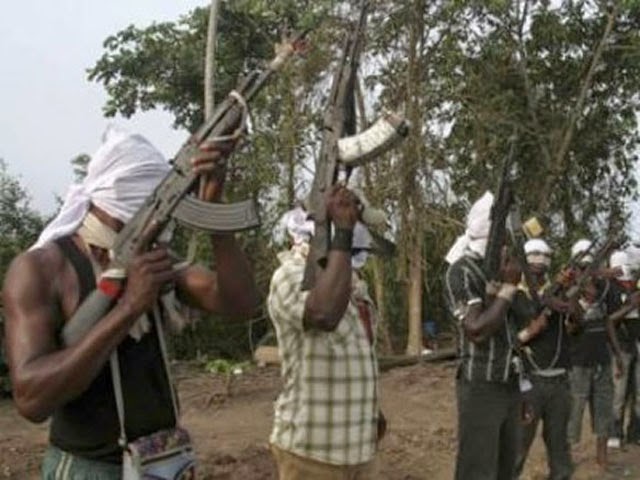Christians are being targeted by Islamist terror groups in the Sahel region of Africa. According to the latest Global Terrorism Index the Sahel has ‘become the new epicentre of terrorism’.
The Sahel was identified as an emerging hotspot in the recent Persecution Trends report by Release International, which supports persecuted Christians around the world.
Partners of Release say Christians are being executed by armed gangs who target their villages and stop cars and buses on the road.
‘Killed on the spot’
‘Christians are killed on the spot,’ says ‘Susanna’. ‘If you’re kidnapped and you’re a believer, there is no possibility you will survive.’
When the jihadists attack villages, they know where the Christians live and they search them out. Susanna says: ‘They are looking for believers.’
The Release International partner has worked in the region for more than a decade and is alarmed by the growing religious dimension to many of the attacks.
For example, ‘Mamouna’, her husband and two small children, aged four and seven, were singled out because of their faith. ‘They targeted the family specifically because they knew they were Christian,’ says Susanna. ‘As they ran away, Mamouna’s husband was killed.’
In Burkina Faso, the terror groups destroy shops, schools and official buildings, but the focus of their destruction, Susanna notes, is often the church. And the violence is spreading across the region.
The Sahel region extends across Africa where the Sahara gives way to savannah, taking in a swathe of nations, including Niger, Mali and Chad.
Terror attacks
‘Following military defeats in Syria and Iraq, Islamic State shifted its attention to Sahel,’ states the 2022 Global Terrorism Index (GTI).
The report continues: ‘The Sahel has become increasingly more violent over the past 15 years, with deaths rising by over 1,000 per cent. The increase in violence shows no sign of abating.
‘Five of the top ten deadliest terror attacks in 2021 were in Sahel, the rest were in Afghanistan.’
The GTI believes the prime movers behind the growing conflict include Islamist terror groups Islamic State in West Africa and Jama’at Nasra al-Islam wal Muslimin.
Burkina Faso, one of the poorest countries in Africa, now ranks fourth on the Index. Attacks there rose to 216 in 2021, with terror groups focusing on the country’s borders with Niger and Mali.
Jihadis
Until 2014, Burkina Faso was a model of peaceful relations between Christians and Muslims. Both faith groups lived contentedly side by side. But then heavily armed jihadis began returning from conflicts in Libya and Syria.
In 2019 the violence increased dramatically. That year, Susanna says, the jihadis declared their intention to target Christians, who make up at least 20 per cent of the population. ‘Now the whole country has been touched by these terrorist attacks,’ she adds.
‘Timothy’, an Assembly of God preacher, lived in the north-west with his wife and five children. He was working to help internally displaced people some 200 kilometres from the capital.
‘Timothy was threatened,’ says Susanna. ‘He was told they were planning to kill him. But he was bold and said: “I will stay with my family; we will serve the Lord where we are.”’
But then the situation changed for the worst. ‘One church member, a lady, had been walking down the street,’ says Susanna. ‘There was a bomb hidden in the road. Suddenly, she exploded. There was nothing left of her.
‘Timothy told me, “If we don’t move now, the road may be completely closed and there will be no possibility to get out. We must move to the capital.”’
He joined the flood of people forced by the violence to flee their homes. According to the UN Refugee Agency (UNHCR) there are now almost 2.7m refugees across the region.
Radicalization
Release International partner Susanna is working to provide urgent help to the displaced and refugees. In recent years, she has observed the culture grow increasingly radical and intolerant – and not just in Burkina Faso.
Susanna began to notice the difference back in 2016. ‘Very soon there were more than 600 jihadist schools in Burkina Faso. They were training normal people to become jihadist fighters.’
Today, she sees that same process of radicalization taking place across the Sahel. ‘Hotspots begin in different areas. And when you look at the big picture, you can see they are somehow connected. I am a little afraid now when I look at Africa.’
She continues: ‘Many people try to say that these are simply tribal wars. But what we see is the radicalization of Muslims. The jihadists are trying to make an Islamic State of Greater Sahara. It is really obvious that this is a religious conflict.’
In the middle of this trouble, she believes God is at work. The church is growing under pressure. ‘People are growing in faith and have the courage to keep their faith.
‘Wake-up call’
‘It reminds me that freedom and peace must never be taken for granted,’ says Susanna. ‘What I see challenges me to stay strong.
‘This has been a wake-up call for Christians in Burkina Faso. And it’s a wake-up call for us all. The clock is ticking.’
‘The conflict in the Sahel is the forgotten jihad,’ says Release International CEO Paul Robinson. ‘The religiously motivated violence that has been growing in Nigeria is now being replicated in a much wider region. It is time for the world to sit up and take notice.’
Release International is active in around 30 countries. It works through partners to prayerfully, pastorally, and practically support the families of Christian martyrs, prisoners of faith and their families, as well as Christians suffering oppression and violence, and Christians forced to flee.










